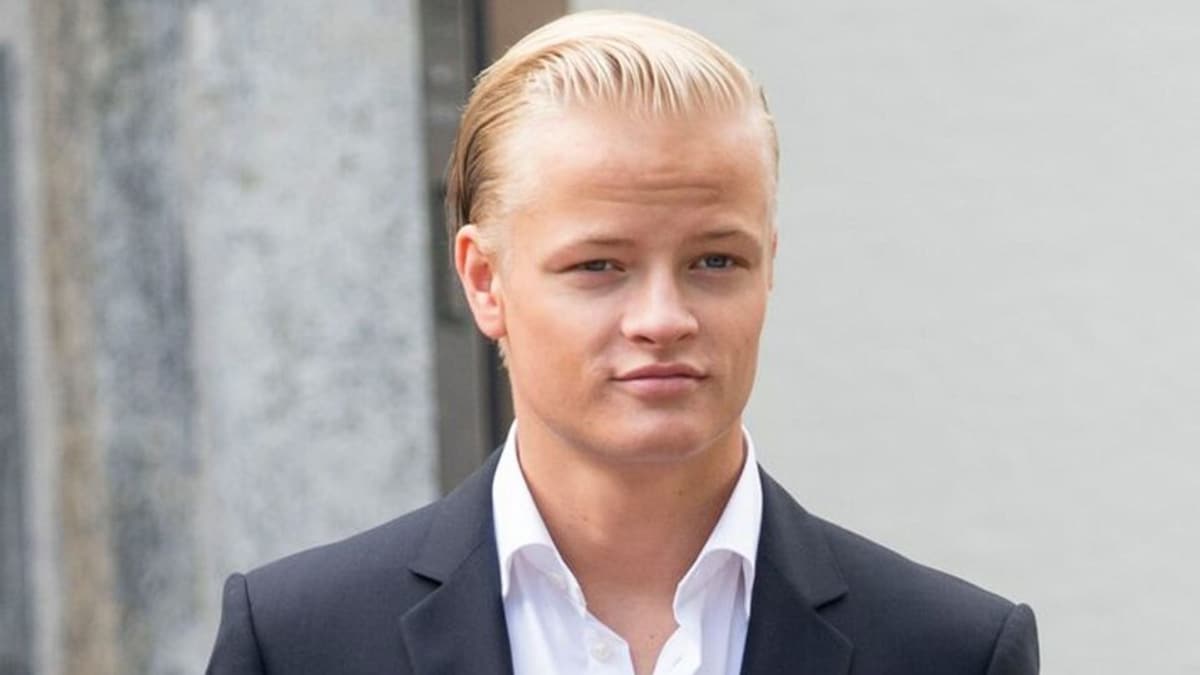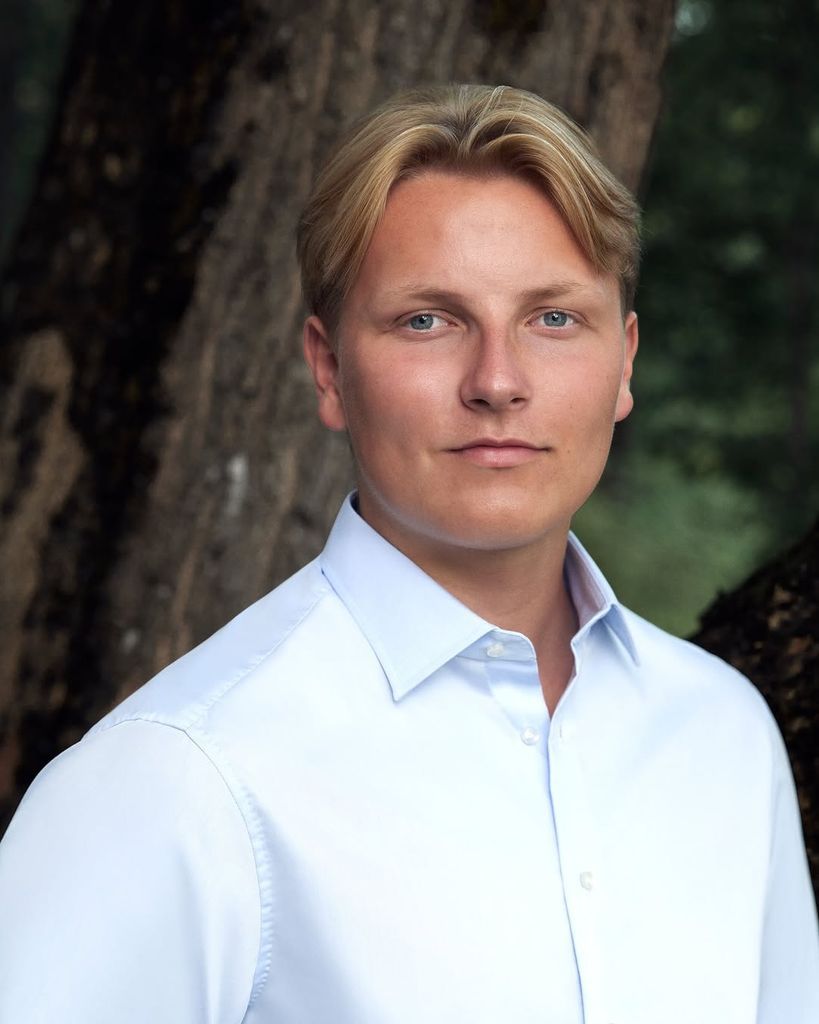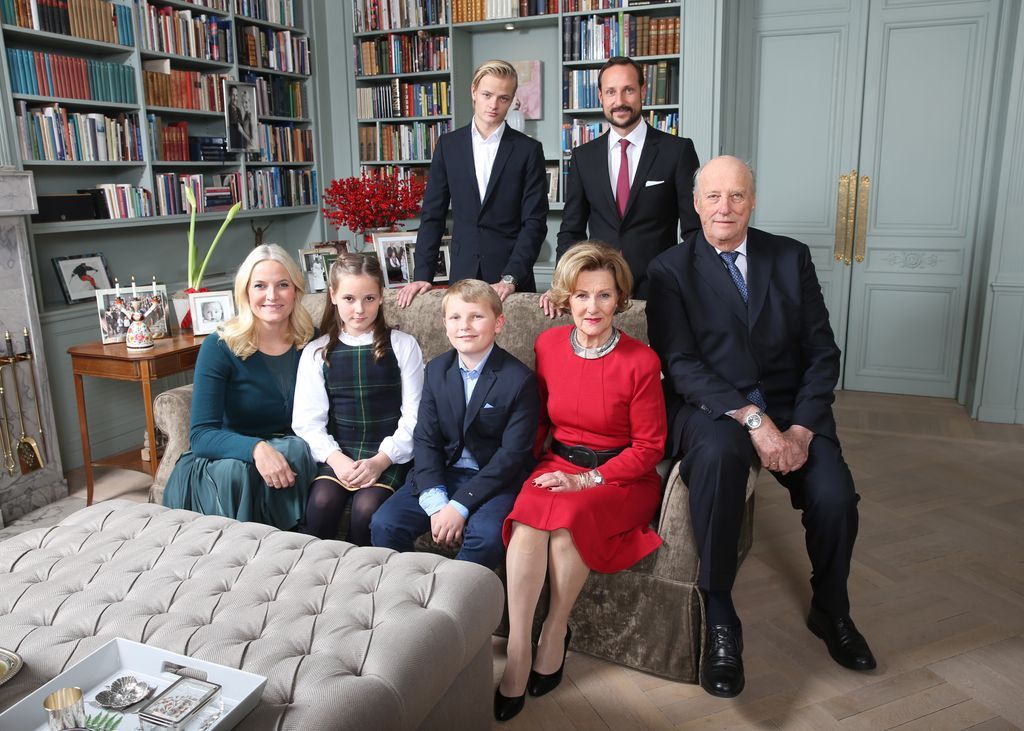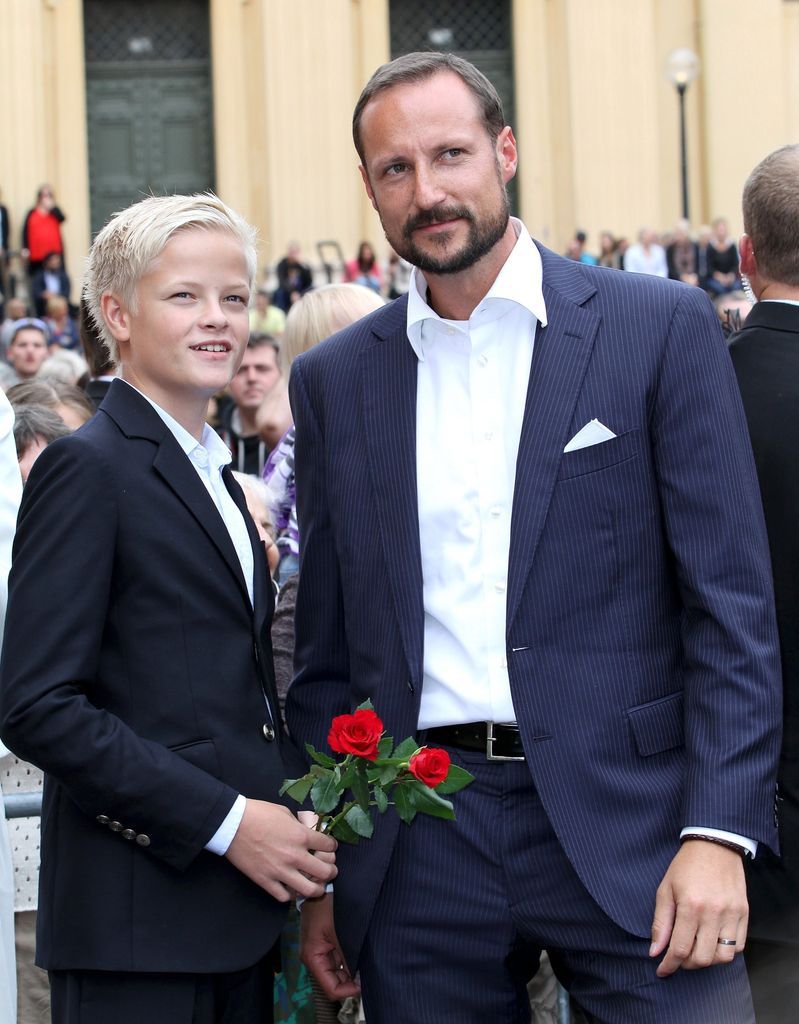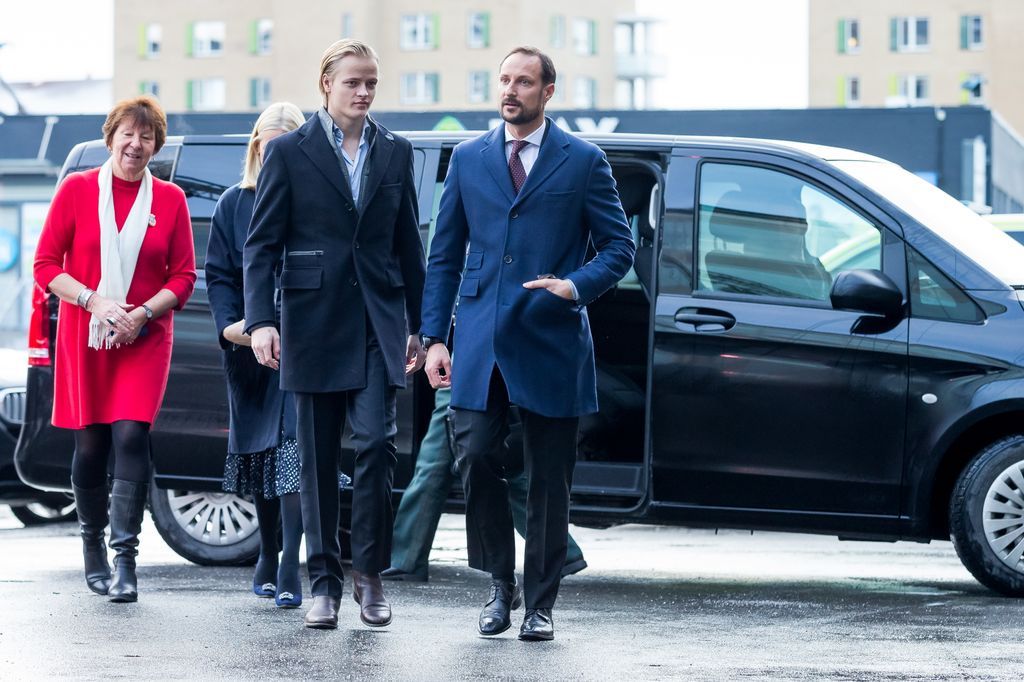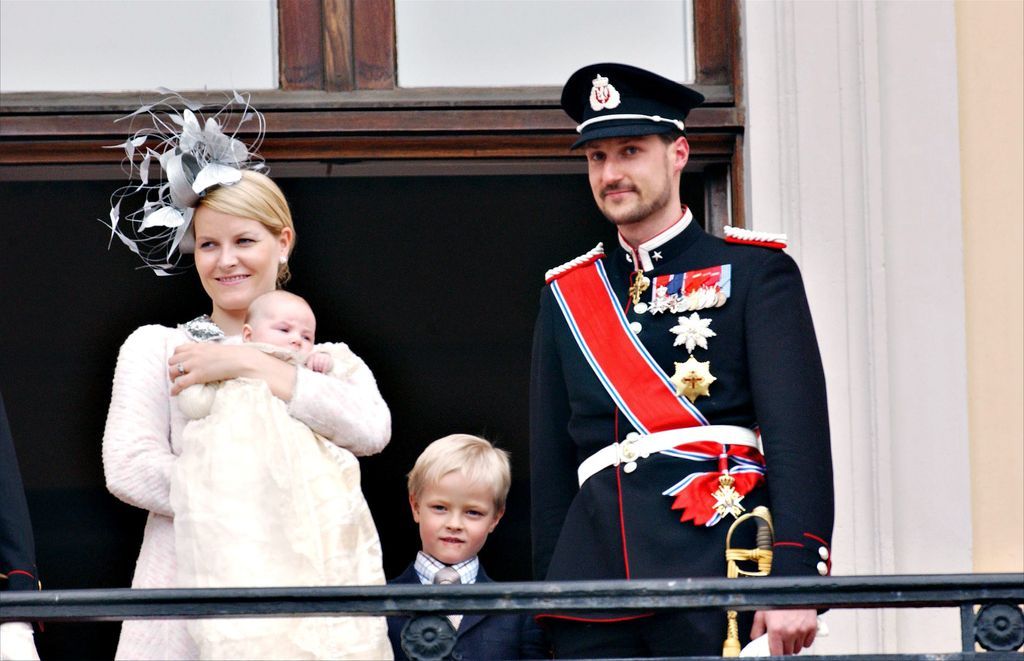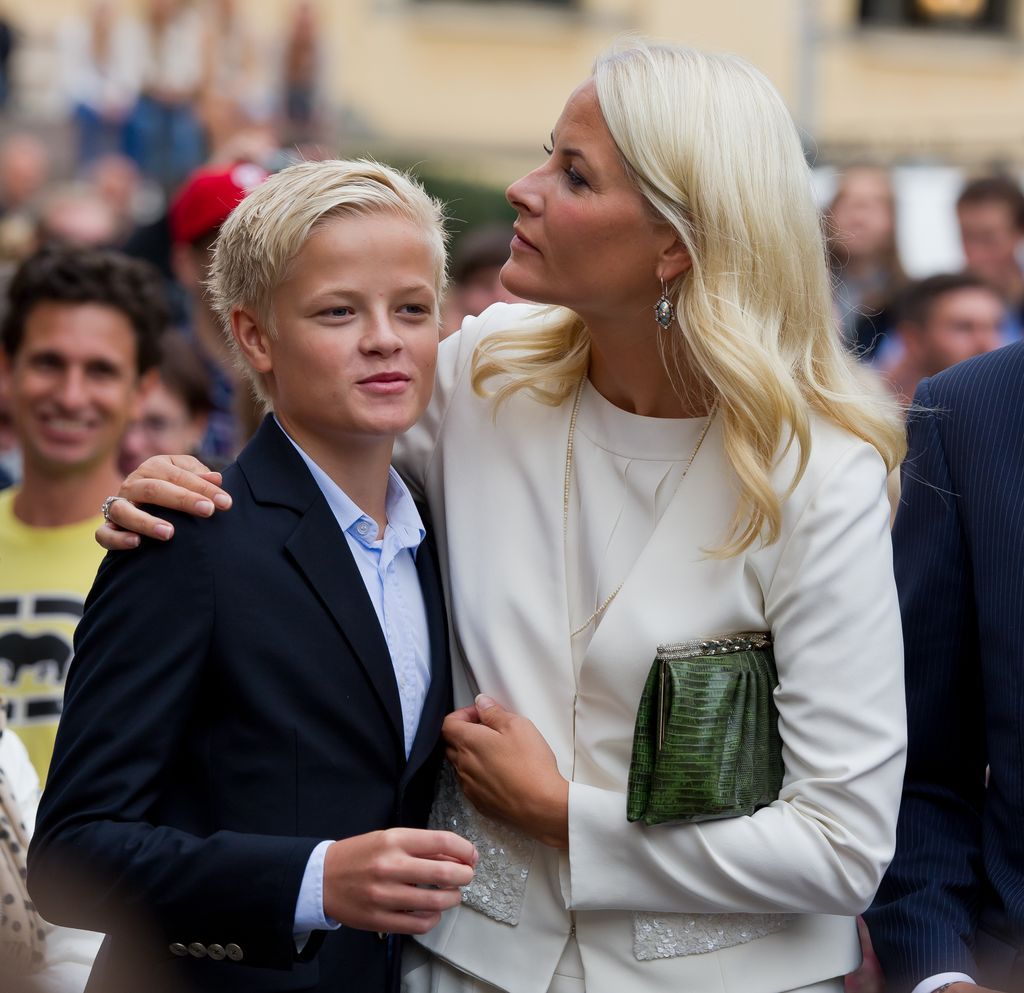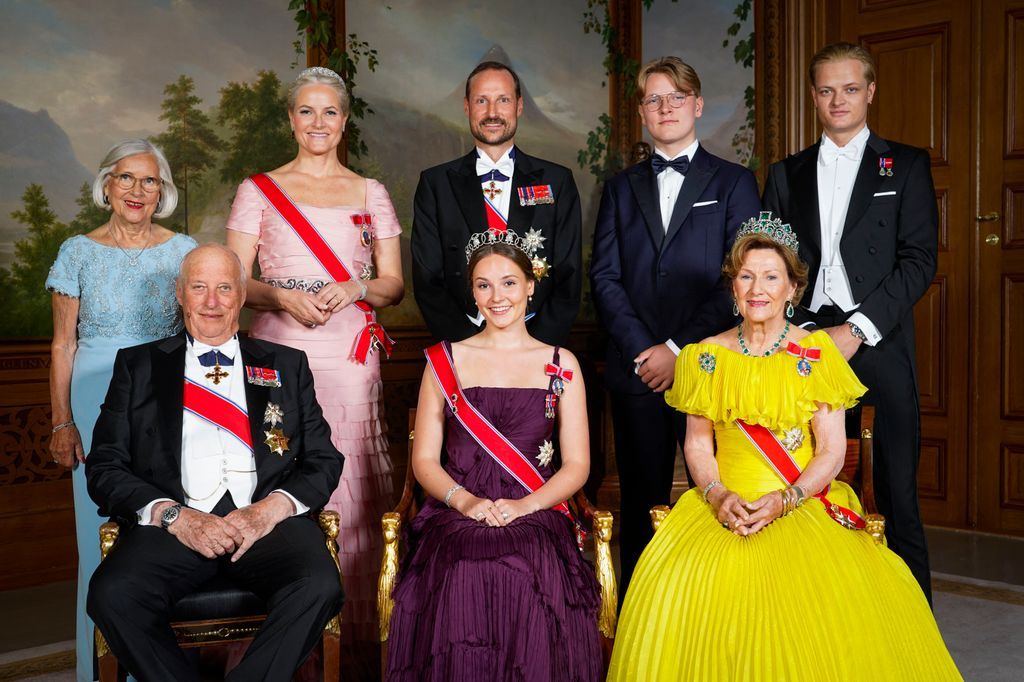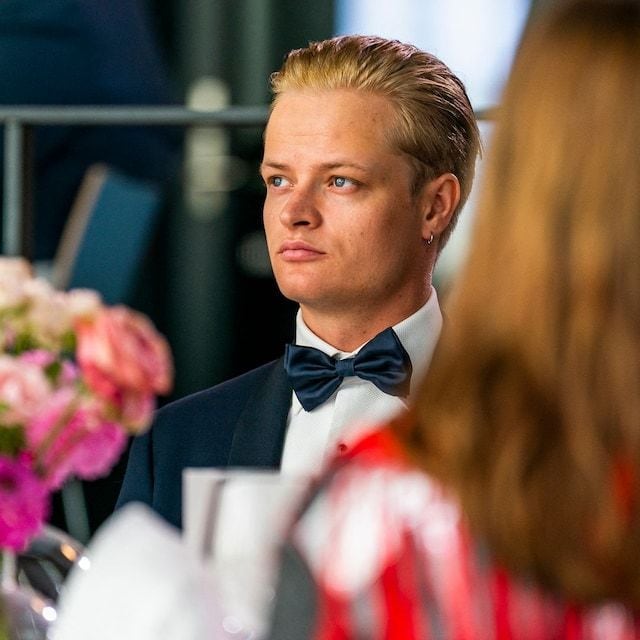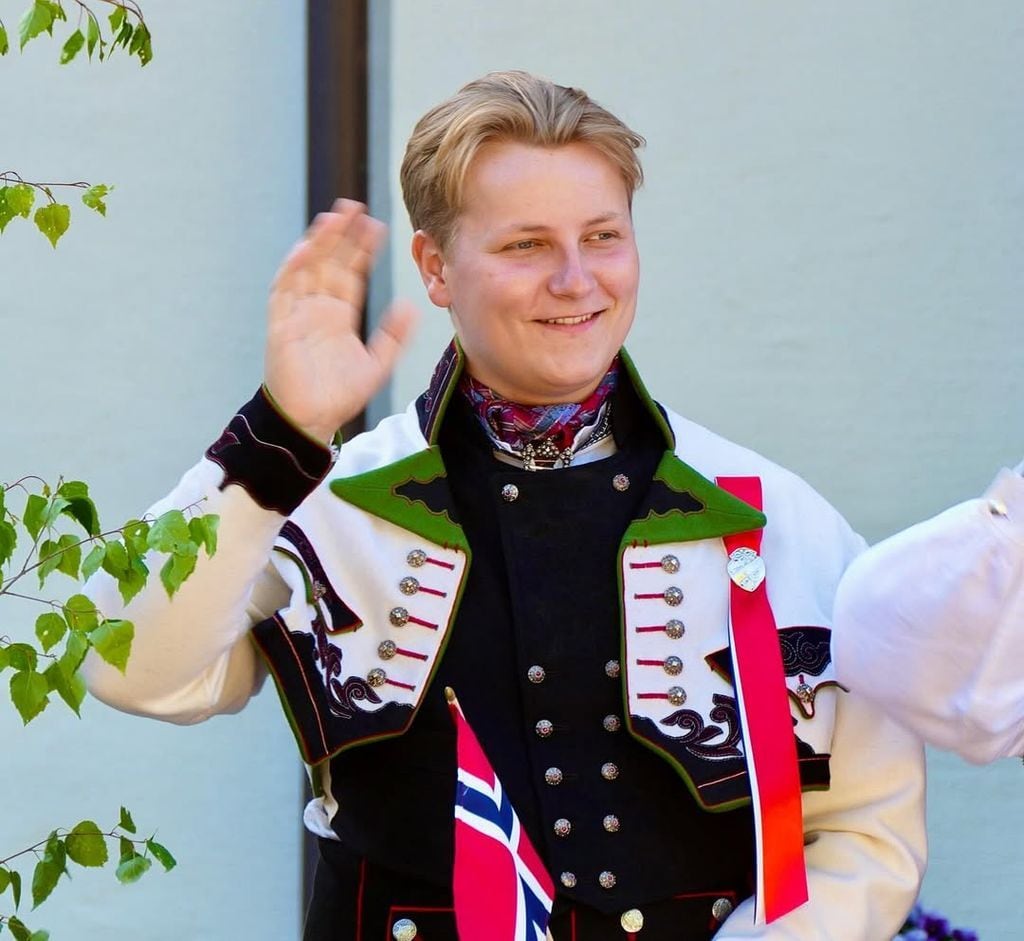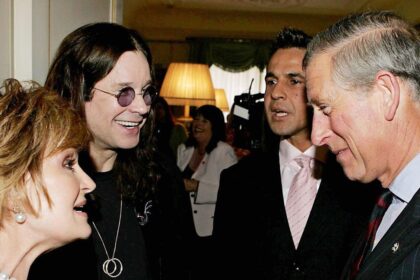The Norwegian Royal Family is back in the spotlight after the news of Crown Prince Haakon‘s family getaway with Marius Borg, the eldest son of Princess Mette-Marit, and his younger son, Sverre Magnus, to practice one of their favorite water sports, surfing, on the Portuguese coast. What seemed like a perfect “guys’ trip” has revealed a much more complex story: the notable absence of the maternal figure during this family vacation, a judicial investigation involving the monarchy, and an institution that, through discreet gestures and drastic decisions, seems to be creating distance. Just as a year has passed since the criminal process began against Marius, the Royal House has confirmed a measure that redefines his status.
The eldest son of Princess Mette-Marit has lost his diplomatic passport, a document granted to him during childhood due to his close ties with the royal family. Although he never held a noble title or official duties, the passport allowed him to bypass immigration controls, receive preferential treatment at airports, and have enhanced consular protection. Prince Haakon publicly confirmed that Marius had held it since childhood but did not mention its use for private trips, which caused discomfort and media pressure in the country.
According to revelations from the magazine Se og Hør, Marius is said to have used the passport for multiple private trips, even without the company of other royal family members, violating the guidelines set by the Ministry of Foreign Affairs. The use of the passport allowed him to bypass immigration controls and receive preferential treatment at international airports. The publication asserts that Marius abused his privileges by using the passport to avoid compromising situations abroad.
As a direct consequence of the growing public scrutiny and the misuse of institutional privileges, the Ministry of Foreign Affairs of Norway has intervened and taken a drastic measure by revoking Marius Borg’s diplomatic passport, a benefit he had retained since childhood due to his connection with the royal family. In fact, Crown Prince Haakon publicly confirmed that Marius had held this passport since he was a child but did not mention its use for private trips, which caused discomfort and media pressure.
The revocation occurred six months ago during the final phase of a criminal investigation in which he is accused of 23 serious offenses, including rape, sexual misconduct, abuse in close relationships, physical assault, threats, property damage, and violations of restraining orders, as reported by Se og Hør. Prosecutor Sturla Henriksbø is expected to decide in the coming weeks whether to formalize the charges.
During this time Marius has led an active lifestyle, traveling across Europe, including Italy, Cannes, Monaco, and Portugal, which has drawn heavy criticism from the public. His lifestyle, far from the discretion expected of someone connected to the royal family, has sparked national debate.
What is a diplomatic passport?
“The diplomatic passport is reserved exclusively for official trips,” explained sources close to the case to the Norwegian media, and it is reserved for active members of the royal family and diplomats on official missions. From now on, access to this type of documentation will be limited to active members of the Royal Family, such as Prince Sverre Magnus, Princess Marta, and Princess Astrid, as well as a small group of individuals designated by the State. Other members will have to use regular passports once they reach adulthood, according to reports from the Royal House. “Other members” includes Marius and the three daughters of Princess Martha Louise.
The revocation of Marius Borg’s passport represents more than just an administrative action; it signifies the institutional distancing from a figure who has been embroiled in a media storm since his first arrest. The case has sparked a debate about inherited privileges and has placed the Norwegian monarchy under scrutiny, as it faces a complicated situation due to Princess Mette-Marit’s son’s legal troubles. So far, the Royal House has chosen silence. There have been no official statements or responses in the traditional annual interview with the Crown Princes: Marius’s name remains absent from the public discourse.
Marius continues to move freely. He lives away from official events and public life, but the echoes of his lost privileges and the charges he faces keep him in the media spotlight. The question many are asking is whether this incident will be the first step toward a deeper separation between him and the institution that supported him for years.
Read the full article here


